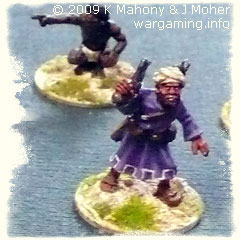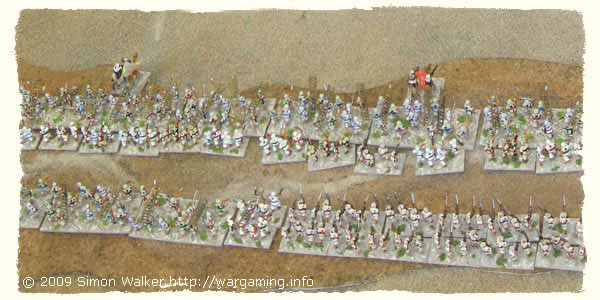Our (winning) Draw (if you can call it that) in the third round put us on 54 VPs and in 2nd place; 5 VPs behind the new leaders (Ivan & Andrew; whom we had played in the first round) and 8 VPs ahead of 3rd place (Brett & Lawrence whom we had just played). As a result our final opponents were John Calnan & Lance Knighton, who were currently in 4th place with 44 VPs; and were running a force of Sassanid’s with lots of Cavalry(S) and (O), Elephants(O), and Knights(X).
Caesennius had not managed to leave home before the Sassanid’s had wandered into the Eastern regions of the Empire! Continue reading “BC’08 Round 4: Sassanid Persian with Sabir Hun Allies 463AD”



